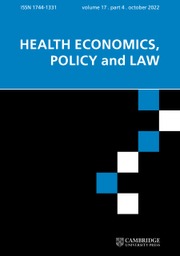No CrossRef data available.
Article contents
Learning lessons about lesson-learning: Covid complexity
Published online by Cambridge University Press: 14 June 2022
Abstract
In the article, ‘Learning Lessons from the Covid-19 Pandemic’, Powell (2022) rightly implies that there is a profusion of confusion in the ‘industry’ which has grown up around lesson-learning from the pandemic. His contribution sets out a helpful framework for classifying or making attempts at lesson-learning. He combines the tripartite classification of inadequate approaches to policy-learning and policy transfer developed 30 years ago by Dolowitz and Marsh (‘uninformed-incomplete-inappropriate’), which he inverts to produce a classification of approaches which are informed, complete and appropriate, with the framework of ‘outcome-mechanism-context’ from realistic evaluation. (I use the term realistic rather than realist, as the latter implies an epistemological stance as opposed to what was intended, which is that evaluation takes account of complexity in a realistic manner.) This produces a classification, and possibly an ‘ideal type’, of informed outcomes, complete mechanisms and appropriate context. Powell rightly implies that no overall conclusion is available from the literature reviewed. He does however imply that different approaches may work in different settings. This is true in one sense but misleading in another. This commentary argues that such ‘relativism’ is not only dangerous in practice but mistaken in theory.
Keywords
- Type
- Response
- Information
- Copyright
- Copyright © The Author(s), 2022. Published by Cambridge University Press



